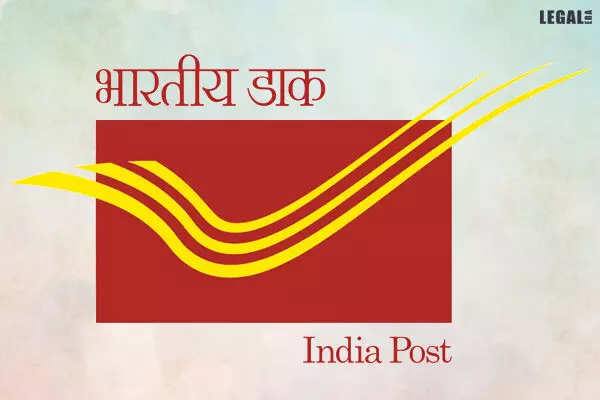- Home
- News
- Articles+
- Aerospace
- Artificial Intelligence
- Agriculture
- Alternate Dispute Resolution
- Arbitration & Mediation
- Banking and Finance
- Bankruptcy
- Book Review
- Bribery & Corruption
- Commercial Litigation
- Competition Law
- Conference Reports
- Consumer Products
- Contract
- Corporate Governance
- Corporate Law
- Covid-19
- Cryptocurrency
- Cybersecurity
- Data Protection
- Defence
- Digital Economy
- E-commerce
- Employment Law
- Energy and Natural Resources
- Entertainment and Sports Law
- Environmental Law
- Environmental, Social, and Governance
- Foreign Direct Investment
- Food and Beverage
- Gaming
- Health Care
- IBC Diaries
- In Focus
- Inclusion & Diversity
- Insurance Law
- Intellectual Property
- International Law
- IP & Tech Era
- Know the Law
- Labour Laws
- Law & Policy and Regulation
- Litigation
- Litigation Funding
- Manufacturing
- Mergers & Acquisitions
- NFTs
- Privacy
- Private Equity
- Project Finance
- Real Estate
- Risk and Compliance
- Student Corner
- Take On Board
- Tax
- Technology Media and Telecom
- Tributes
- Viewpoint
- Zoom In
- Law Firms
- In-House
- Rankings
- E-Magazine
- Legal Era TV
- Events
- Middle East
- Africa
- News
- Articles
- Aerospace
- Artificial Intelligence
- Agriculture
- Alternate Dispute Resolution
- Arbitration & Mediation
- Banking and Finance
- Bankruptcy
- Book Review
- Bribery & Corruption
- Commercial Litigation
- Competition Law
- Conference Reports
- Consumer Products
- Contract
- Corporate Governance
- Corporate Law
- Covid-19
- Cryptocurrency
- Cybersecurity
- Data Protection
- Defence
- Digital Economy
- E-commerce
- Employment Law
- Energy and Natural Resources
- Entertainment and Sports Law
- Environmental Law
- Environmental, Social, and Governance
- Foreign Direct Investment
- Food and Beverage
- Gaming
- Health Care
- IBC Diaries
- In Focus
- Inclusion & Diversity
- Insurance Law
- Intellectual Property
- International Law
- IP & Tech Era
- Know the Law
- Labour Laws
- Law & Policy and Regulation
- Litigation
- Litigation Funding
- Manufacturing
- Mergers & Acquisitions
- NFTs
- Privacy
- Private Equity
- Project Finance
- Real Estate
- Risk and Compliance
- Student Corner
- Take On Board
- Tax
- Technology Media and Telecom
- Tributes
- Viewpoint
- Zoom In
- Law Firms
- In-House
- Rankings
- E-Magazine
- Legal Era TV
- Events
- Middle East
- Africa
NCDRC: In the Absence of Express Undertaking from Central Government, Postal Department is exempted from Liability for Delay in Delivering

NCDRC: In the Absence of Express Undertaking from Central Government, Postal Department is exempted from Liability for Delay in Delivering
The National Consumer Dispute Redressal Commission (NCDRC) by its division member bench comprising Justice R.K. Agrawal (President) and presiding member, Dr. S.M. Kantikar observed that it is a settled legal position that as per Section 6 of the Indian Post Office Act, 1898, the postal department is exempted from any liability for delay in delivery unless the Central Government undertakes it in expressed terms.
In the present case Complainant/Petitioner- Yogesh Kumar, being a member of Niswiz Holidays Company (“Company”), sent a holiday platter to the said company for a holiday package of Agra via speed post on 24.12.2014. The speed post was registered at Sector-12, Mini Secretariat, Faridabad Post Office (“Respondent”) by paying Rs. 39/- as postal charges.
The speed was supposed to be delivered to the company latest by 26.12.2014, i.e., within 2 days. However, it was delivered on 06.01.2015. The grievance of the petitioner was that he paid Rs. 10,000/- to the Company as package charges, which were non-refundable and spent Rs. 20,000/- on shopping for the said holiday.
Due to the late delivery, the said package was not accepted and sanctioned by the company which resulted into a loss of Rs. 30,000/- to the petitioner who could not attend the tour subsequently.
After serving a legal notice to the respondent, the petitioner file complaint in the District Commission which partly allowed the complaint.
The respondent remained dissatisfied with the order and hence filed an appeal before the State Commission. The State Commission found force in the case of the Respondent that in view of Section 6 of Indian Post Office Act, 1898, it was absolved of any liability for delay in delivery of the article booked and consequently disposed of the Appeal.
Hence, a revision petition was filed by the complainant before the NCDRC, claiming a sum of Rs. 50,000 in addition to the total amount of Rs. 13,060/- awarded by the District Commission in his favor.
The NCDRC discussed the relevant provisions at par applicable in the present case mainly involving interpretation of Sections 6 and 21 of the Indian Post Office Act, 1989; Notification No. GSR 40 (E); and, Circular No. 43-4/87 BDD issued by the Department of Post.
The bench opined that Section 6 provides immunity to the Government, i.e., the Postal Department from any liability by reason of loss, mis delivery, delay, or damage to any postal article in the course of transmission by post except in case where in expressed terms, the liability is undertaken by the Central Government.
In this regard, reliance was placed on Union of India and others. vs M.L. Bora 2010, wherein the Hon’ble National Commission interpreted Section 6 of the Indian Post Office Act, 1898 to exempt the Postal Department from any liability for such delays.
In view of the observations, the order passed by the District Commission was modified and the revision petition was dismissed accordingly.



